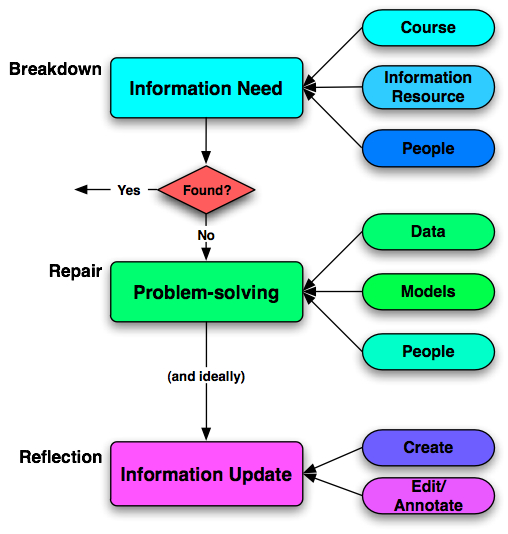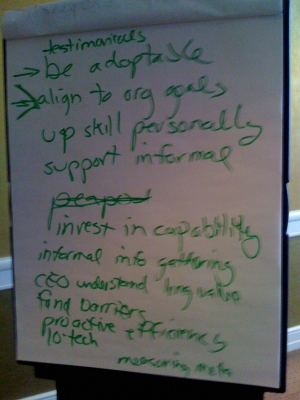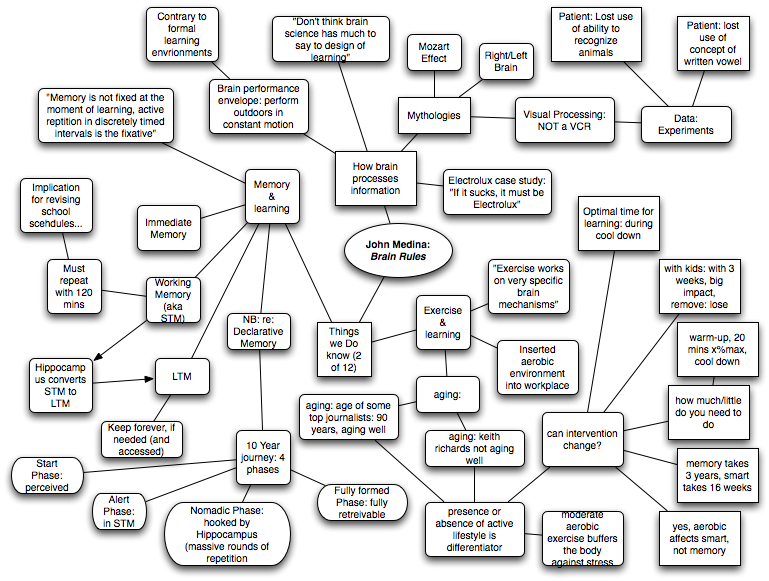In one of my reflection sessions (aka shower), I was thinking what it is I do. I’ve been branding it ‘elearning strategy’, but it’s really more than that. It’s about looking at how organizations develop competence, move to excellence, foster innovation, collaboratively problem-solve, etc. I’ve had a tagline: “making organizations smarter”, and the inevitable (and desired) follow-up is “how do you do that?”. However, then the easy, and uninteresting answer, is to fall into talking about elearning, performance support, mobile, portals, knowledge management, all that stuff that makes people’s eyes glaze over if they haven’t seen the light.
What I realized today was that what I’m really about is improving organizational learning infrastructure. It’s Not About The Technology, as Jay says, though that’s a component of it. It’s about culture, policies, processes, procedures, tools, templates, incentives, and more. It includes courses, and community, and more. It’s about assessing the current state, identifying some long-term goals (and values), establishing metrics, prioritizing short, medium, and long term term steps, and executing against them, with regular checks.
With culture, it’s about willingness to share, trust, take considered risks, or developing that ability. It’s about knowledge and skills how to learn alone and together, using the infrastructure. It’s about populating the performance ecosystem with support. It’s about identifying competencies in learning through tools and collaboration. It’s about providing the technology infrastructure that supports finding or making answers. It’s about experimenting, looking for feedback, and iterating (perpetual beta). It’s at the individual, team, unit, and organizational level. It’s about being strategic first, then tactical.
There are frameworks, instruments, best practices, and more to move, but it’s definitely time to move. I think a survival strategy right now is to invest in capability to you’re poised to move once opportunity comes around again. So, my answer to the question “how do you make organizations smarter?” and new meme is: improving organizational learning infrastructure. Are you improving?



